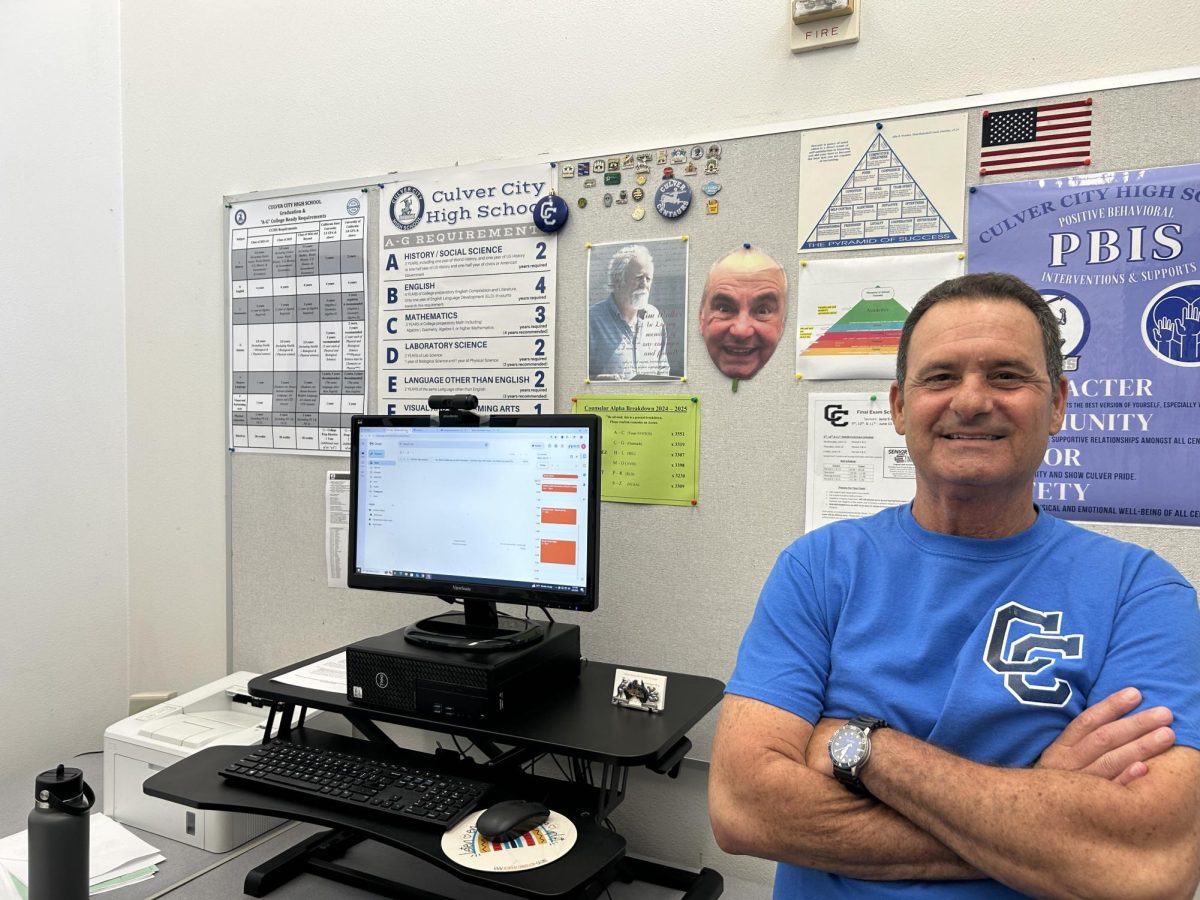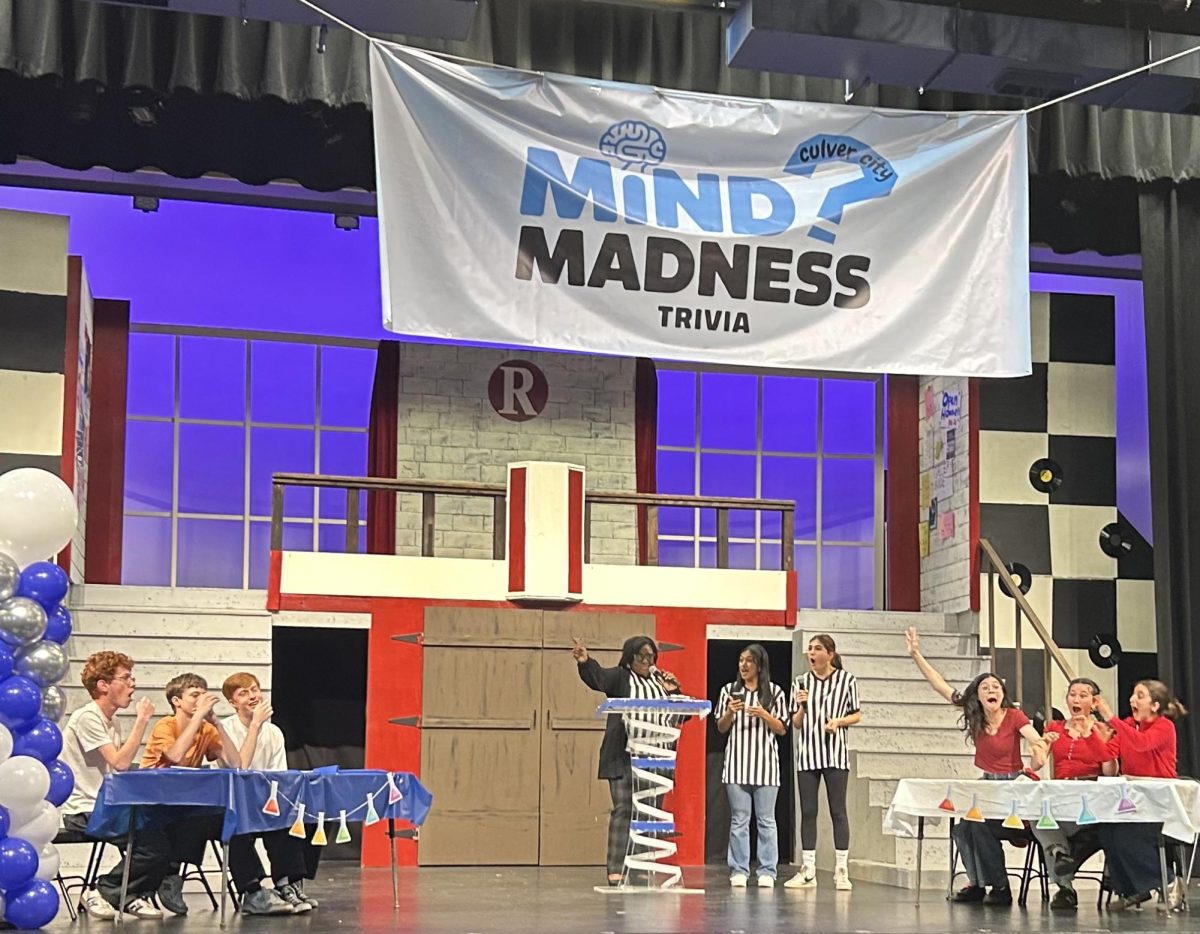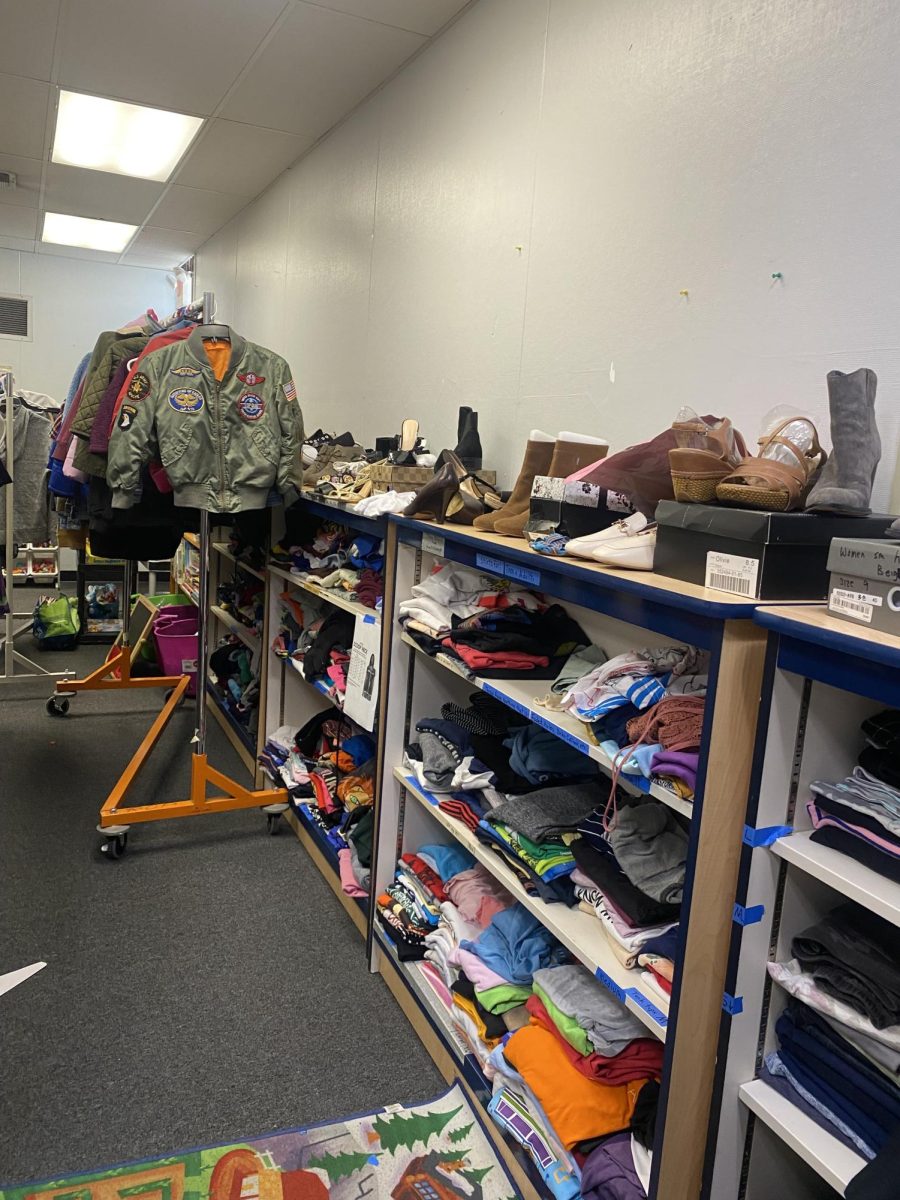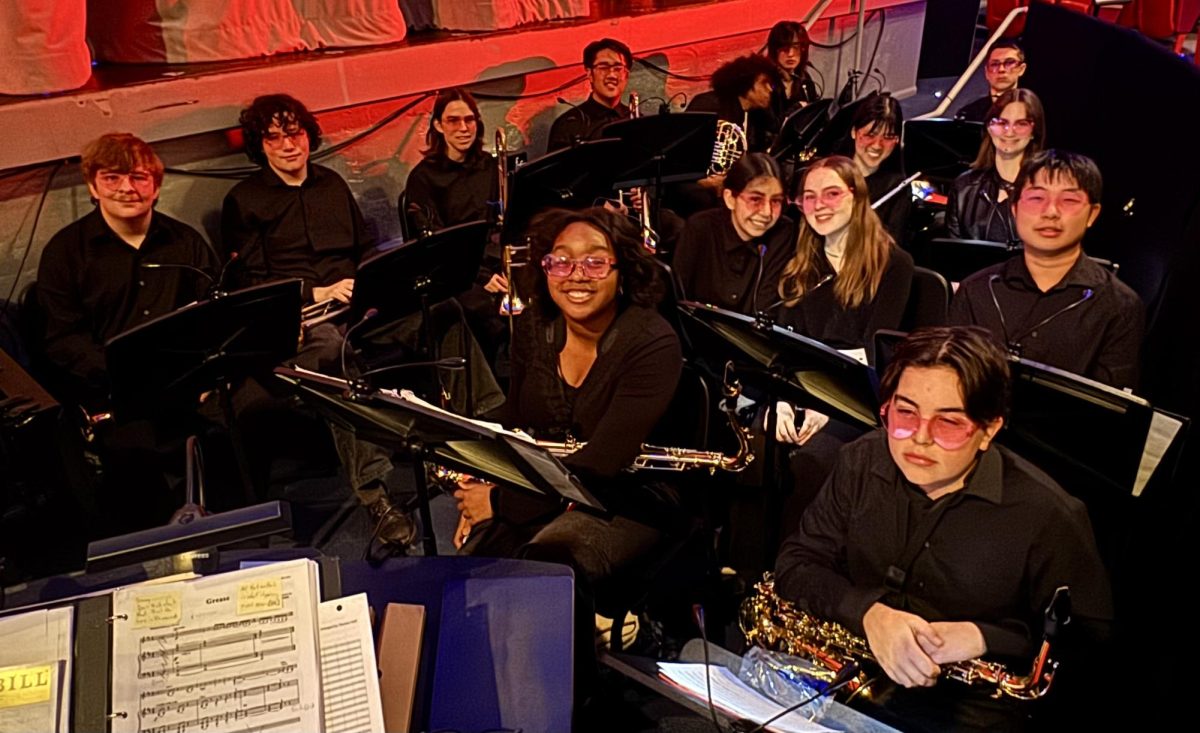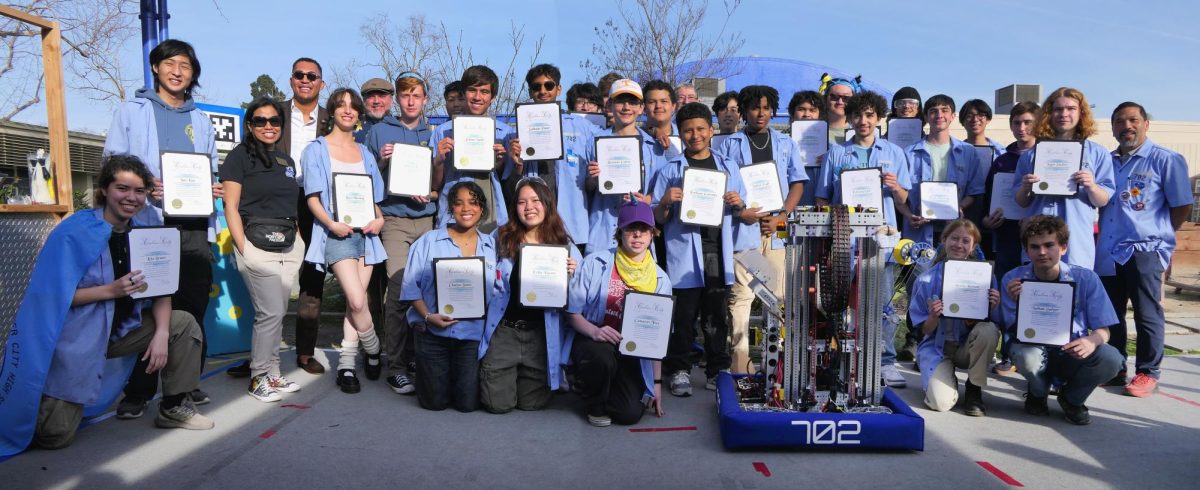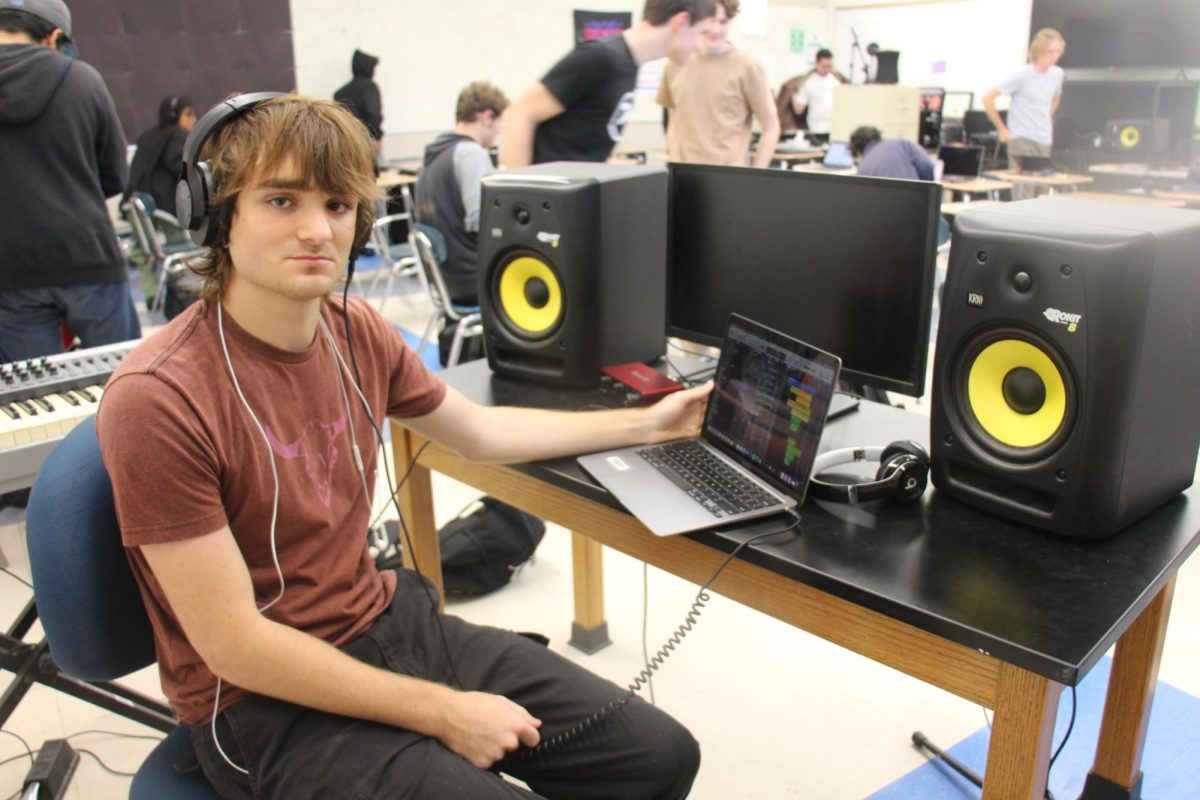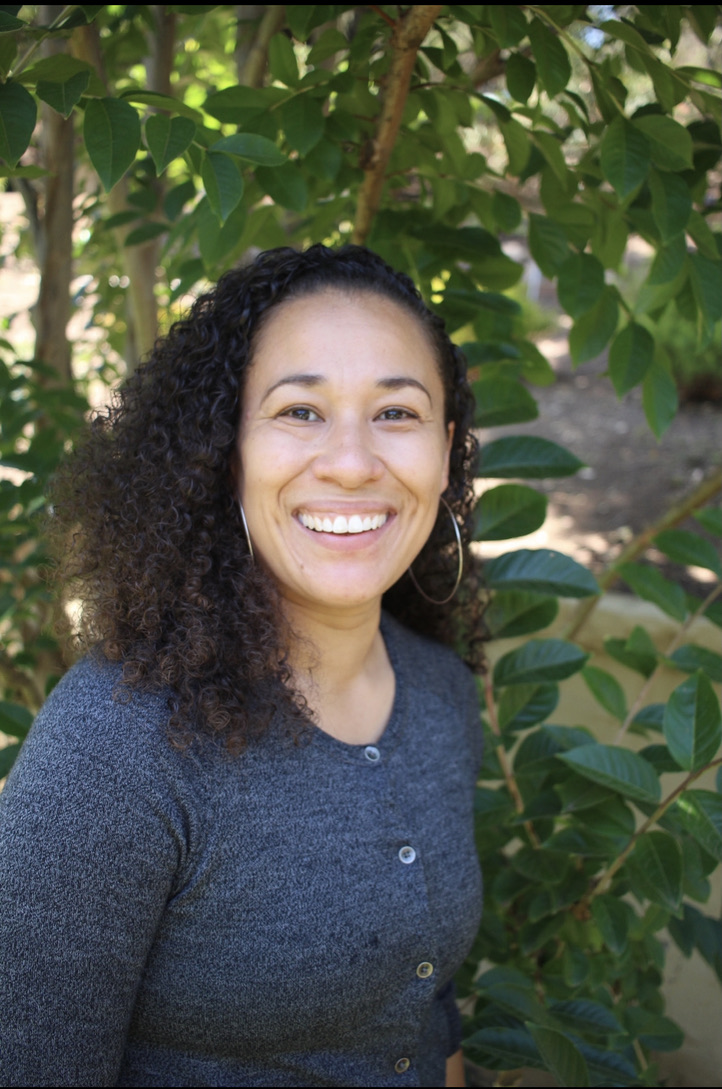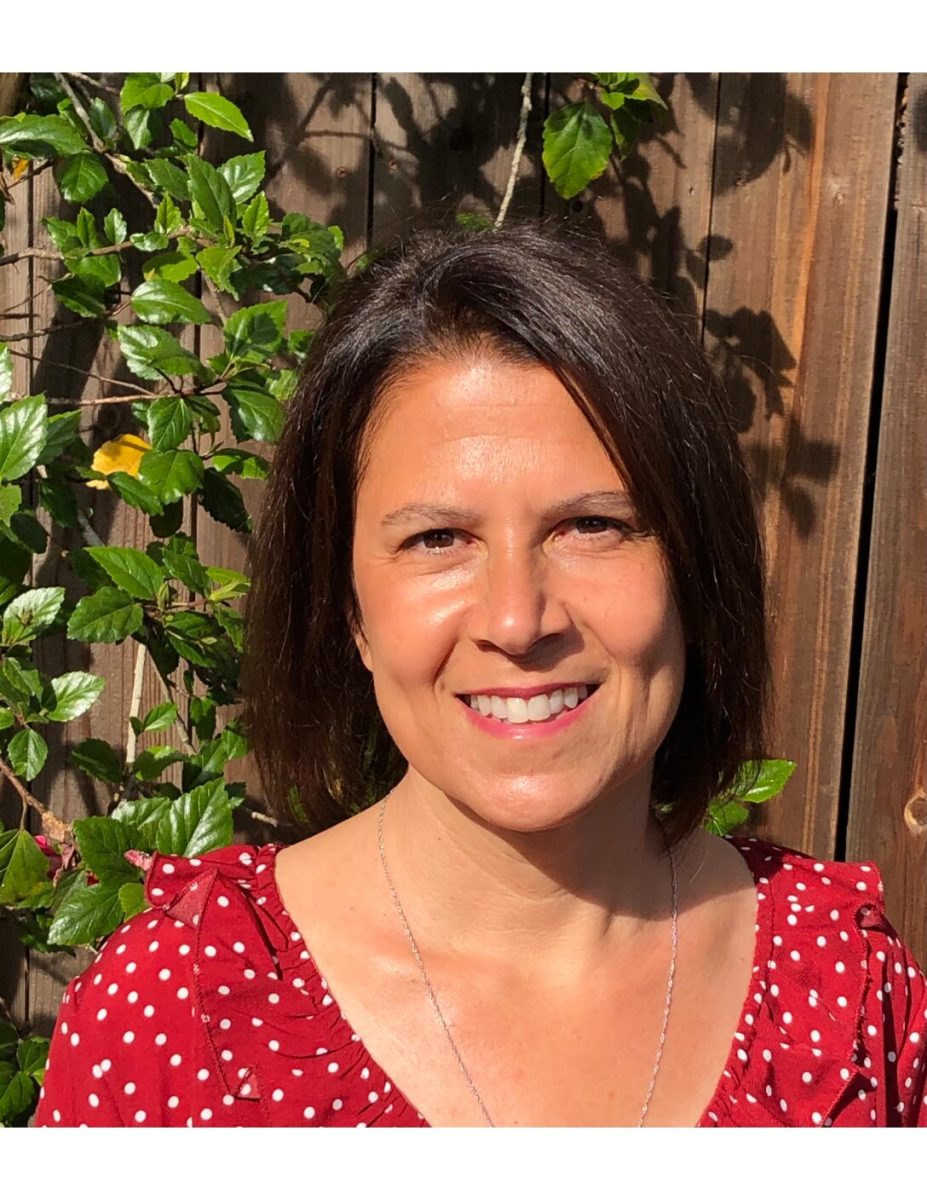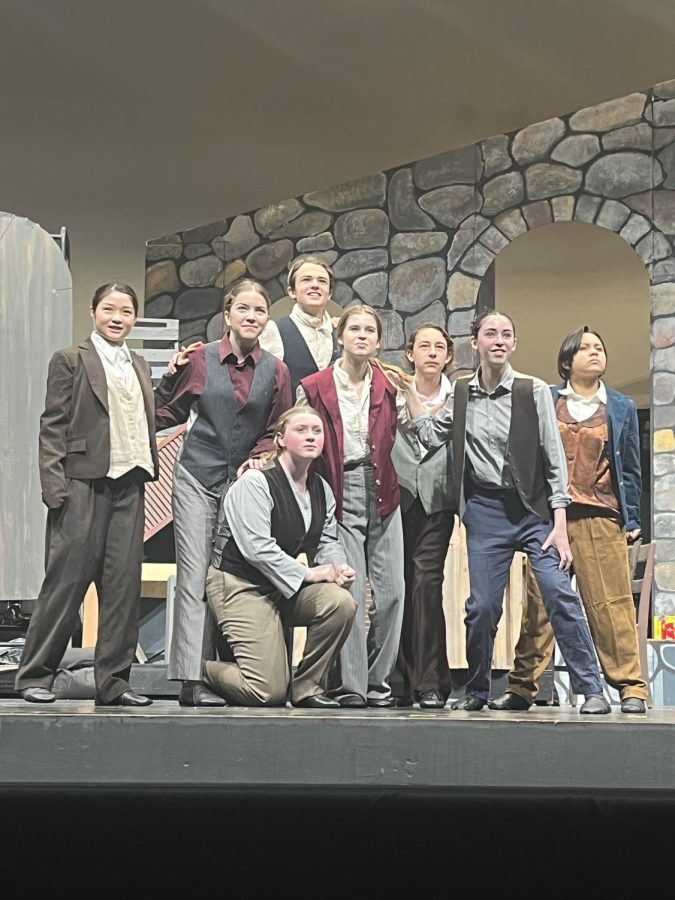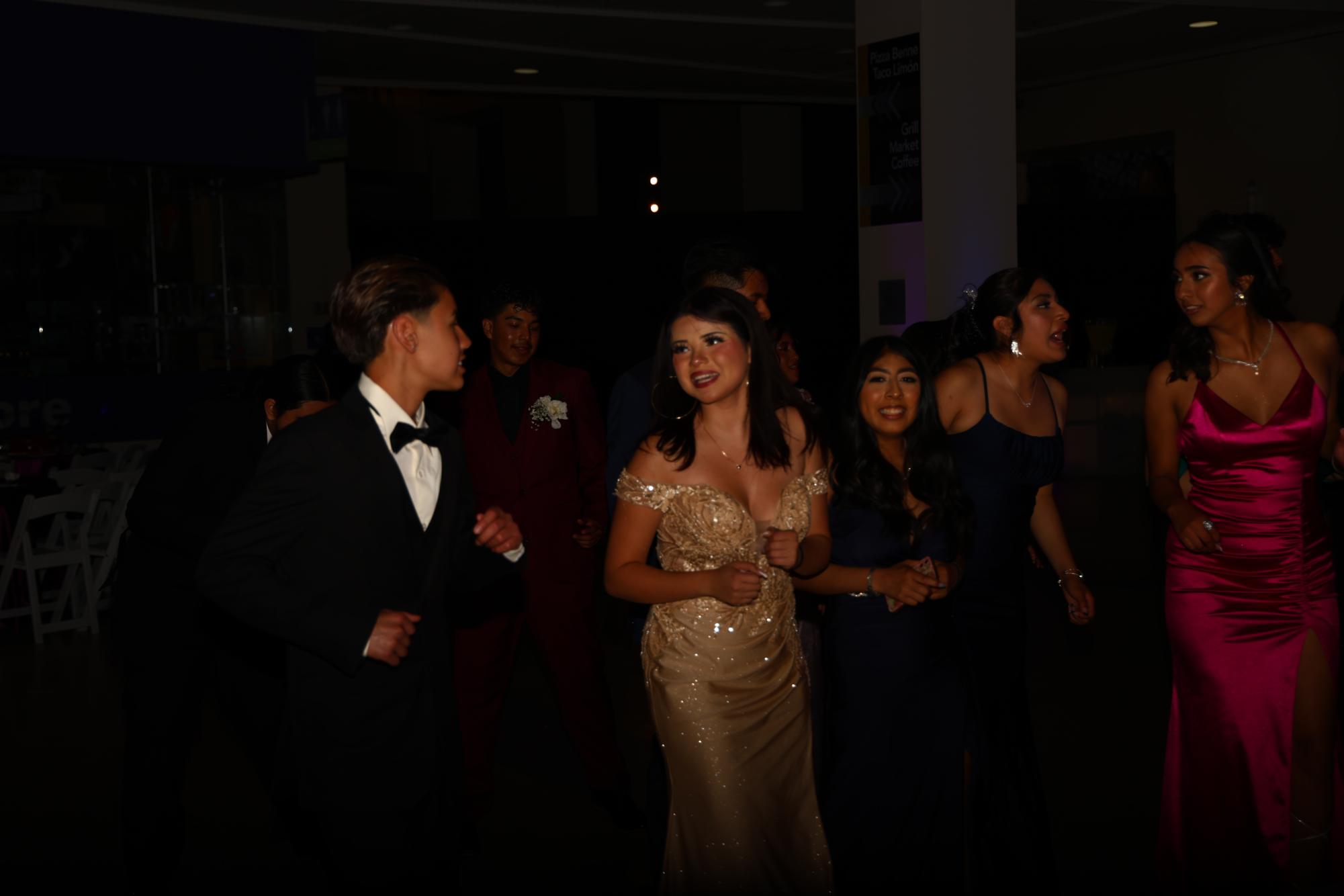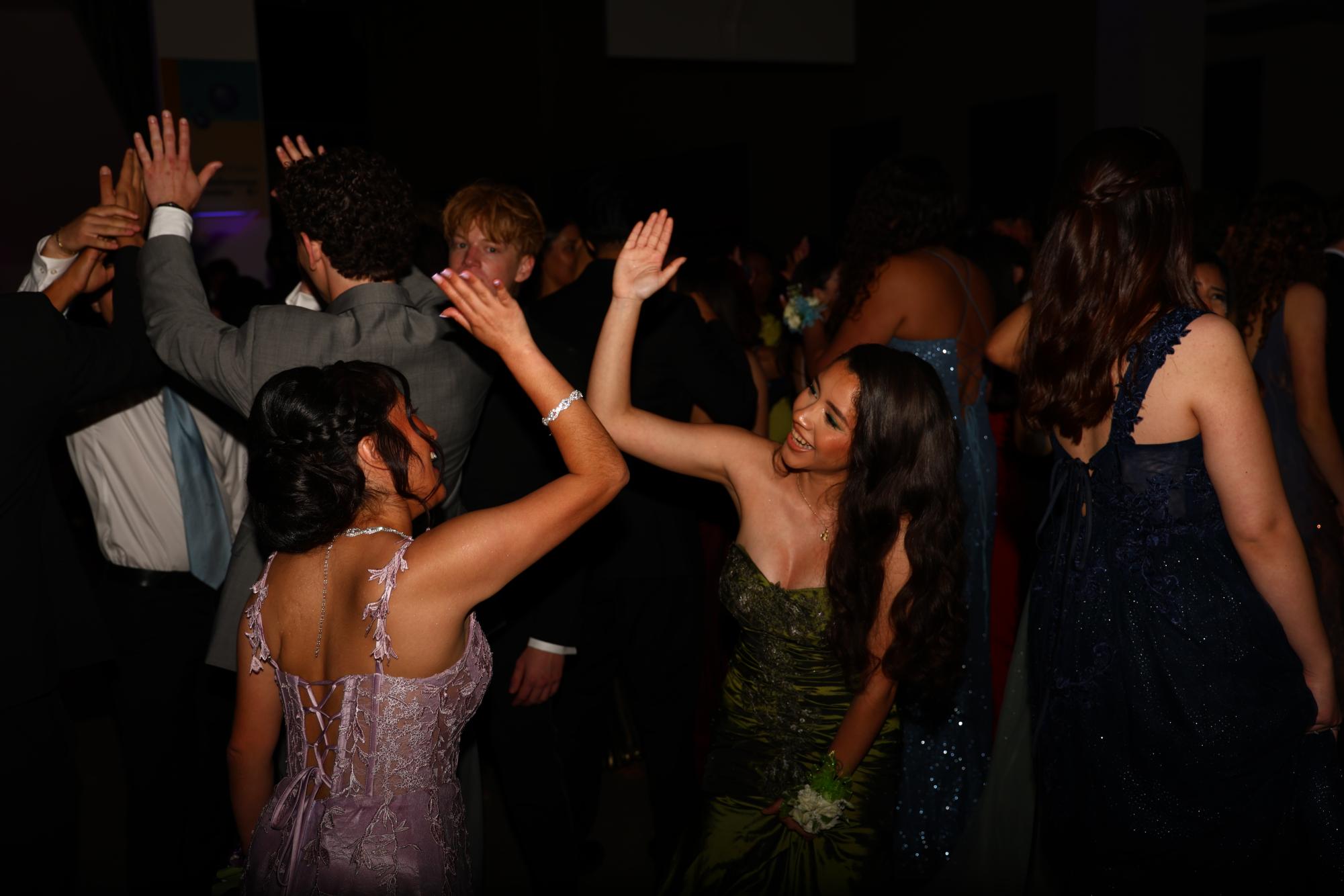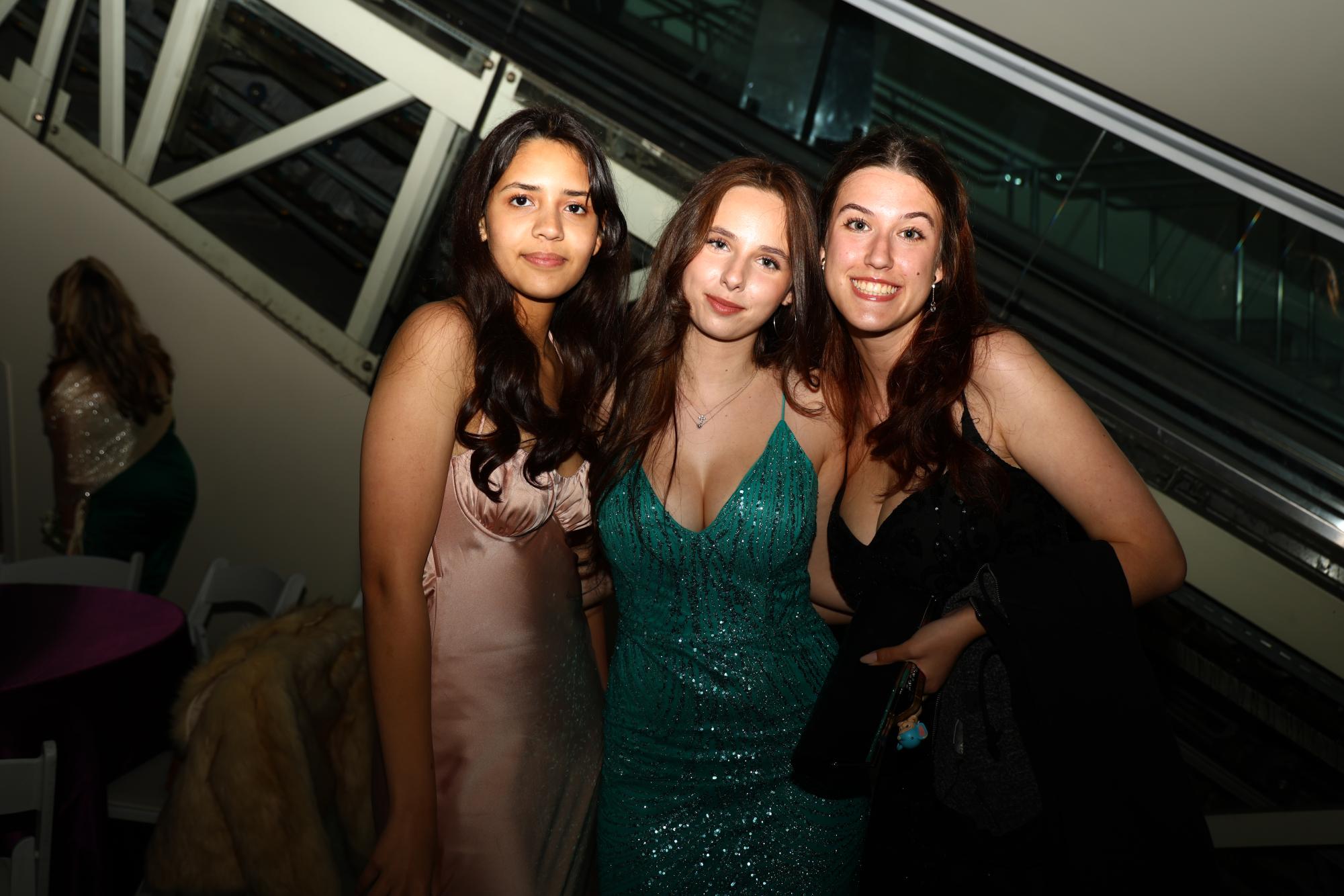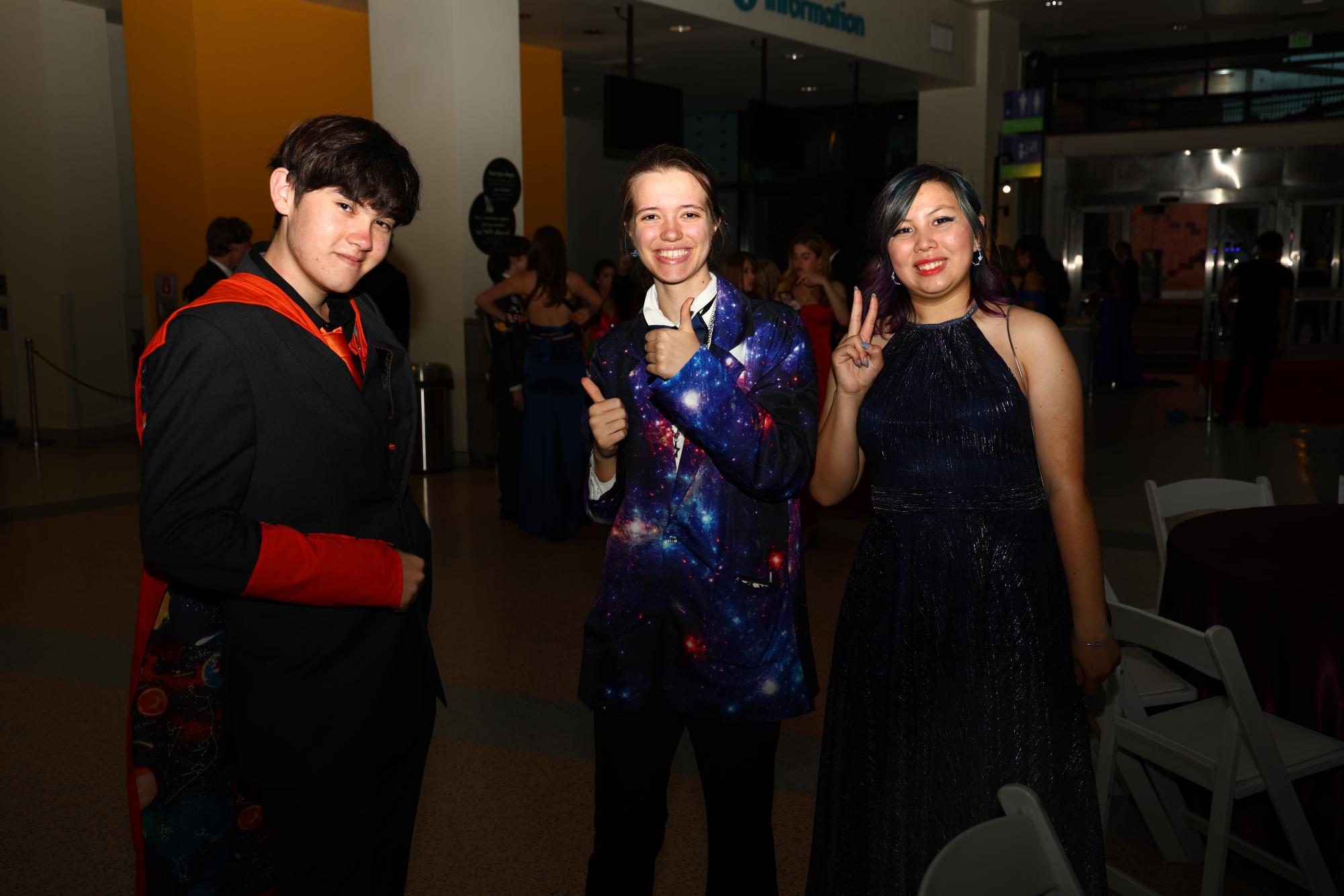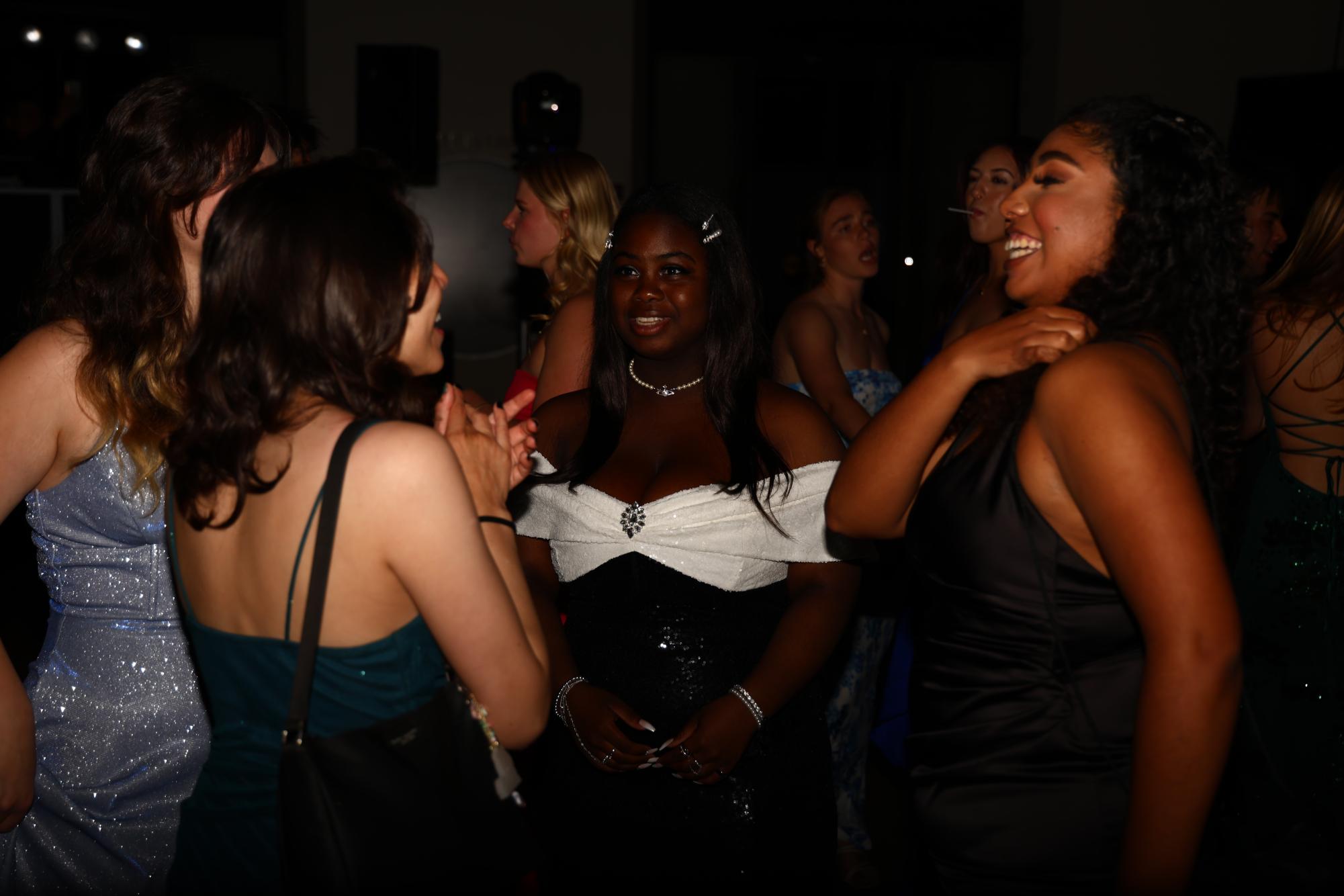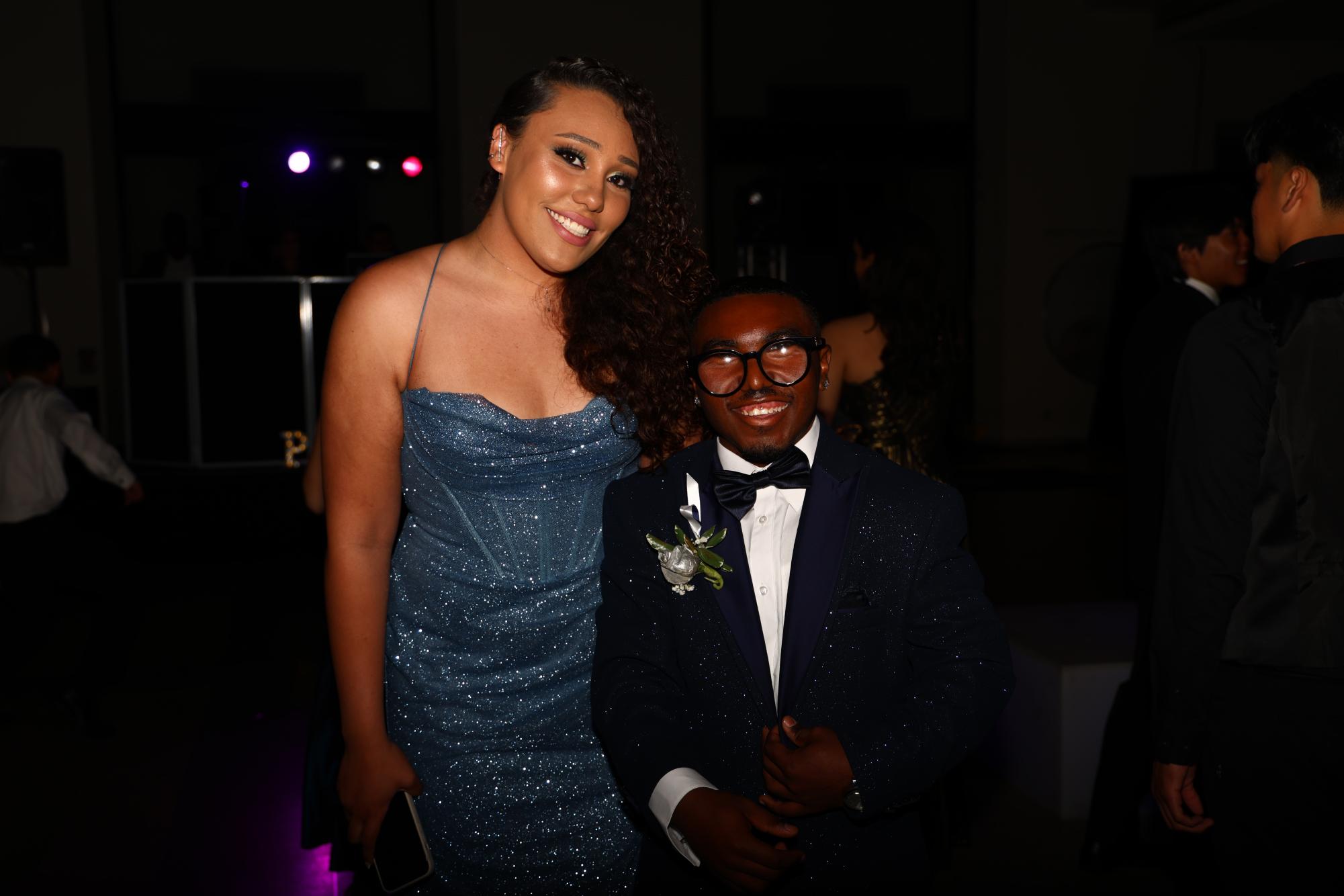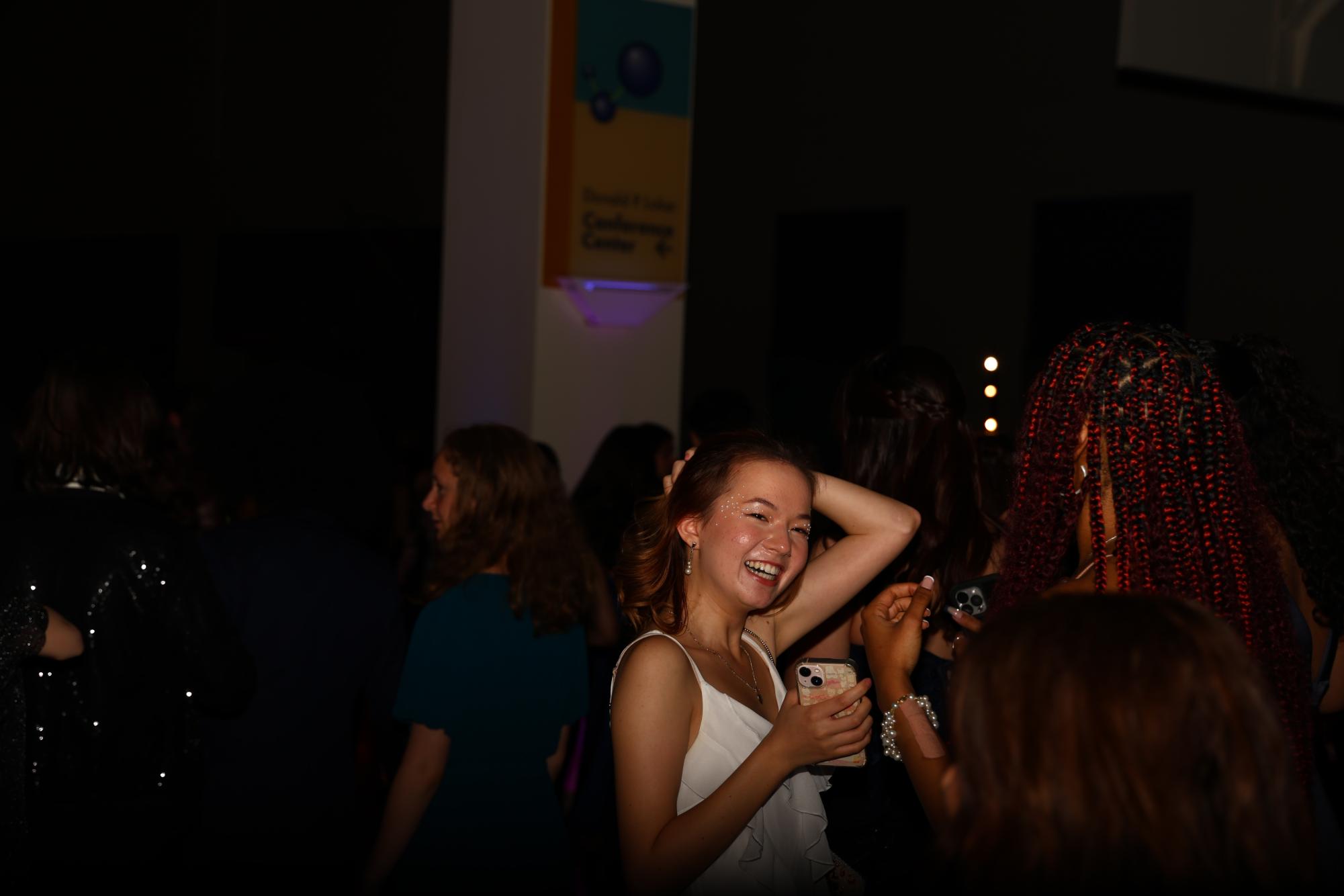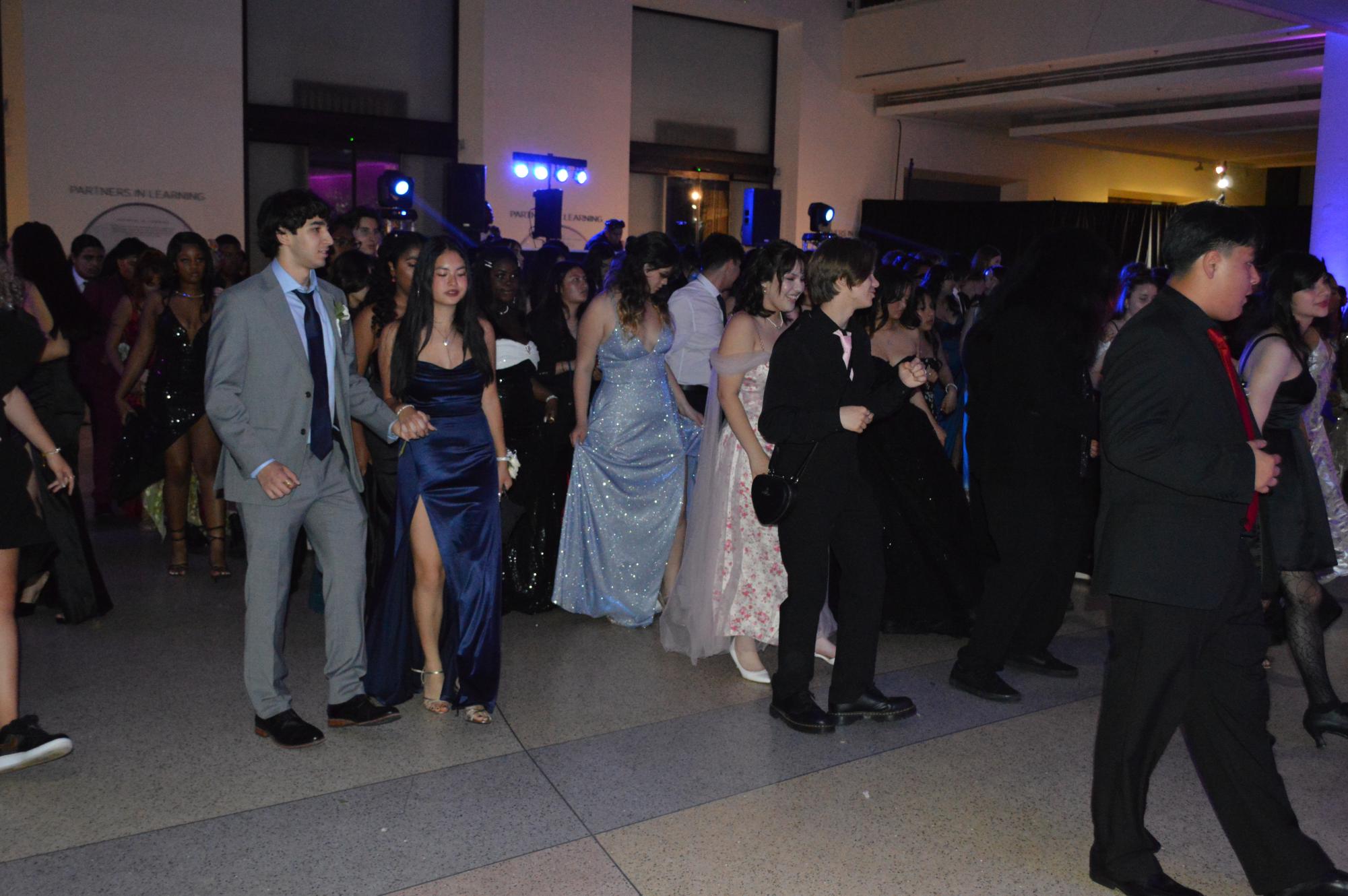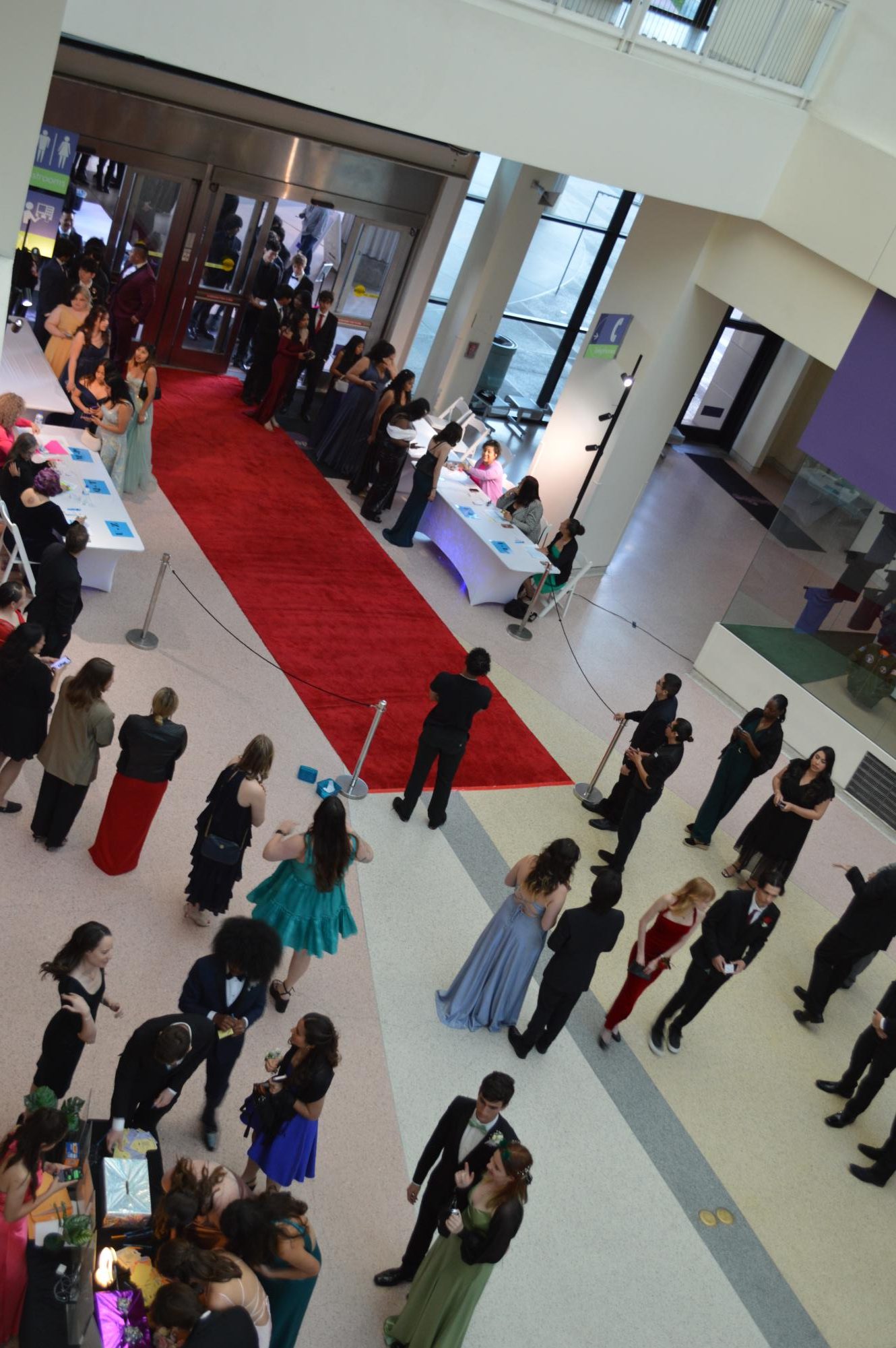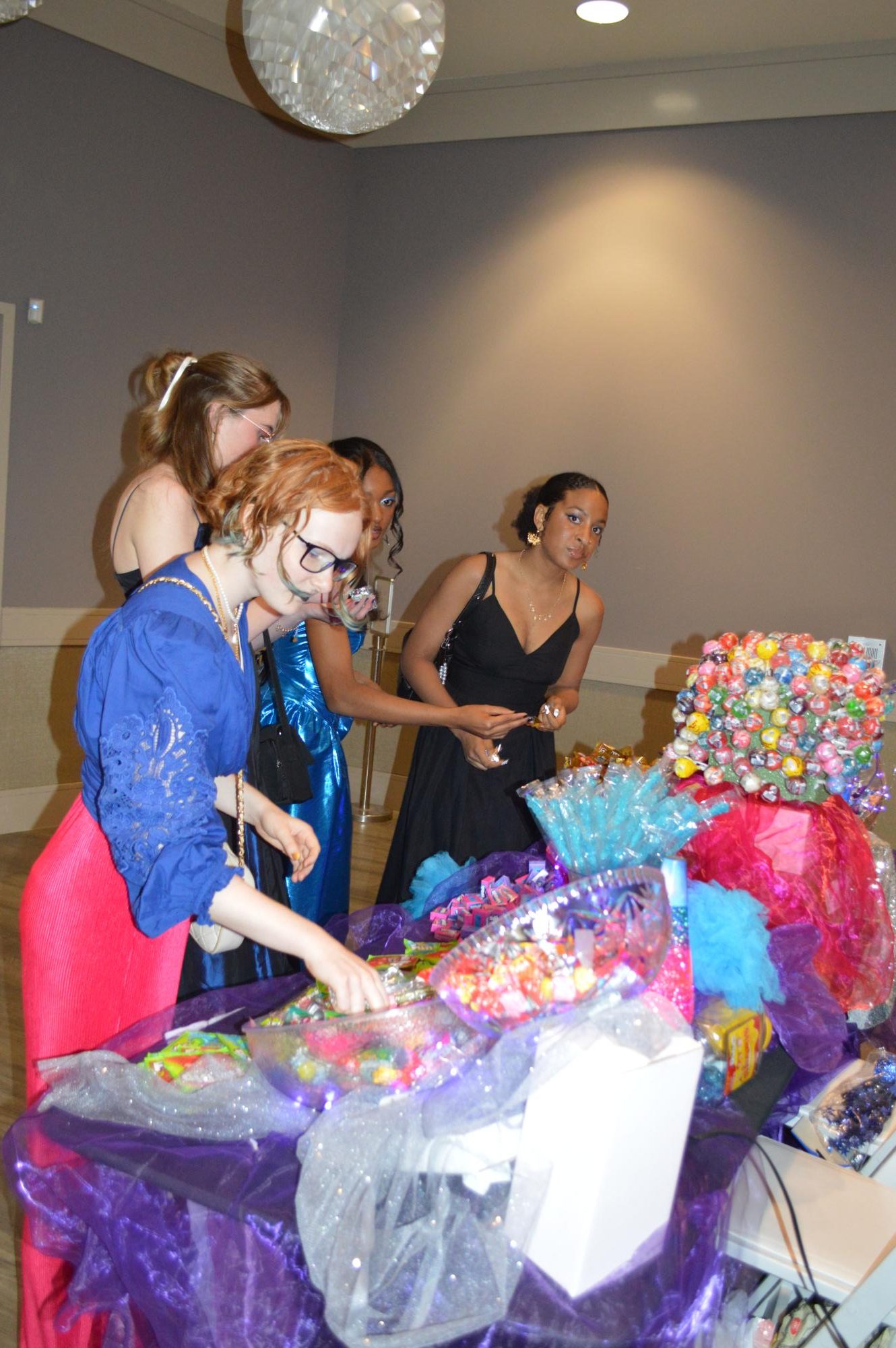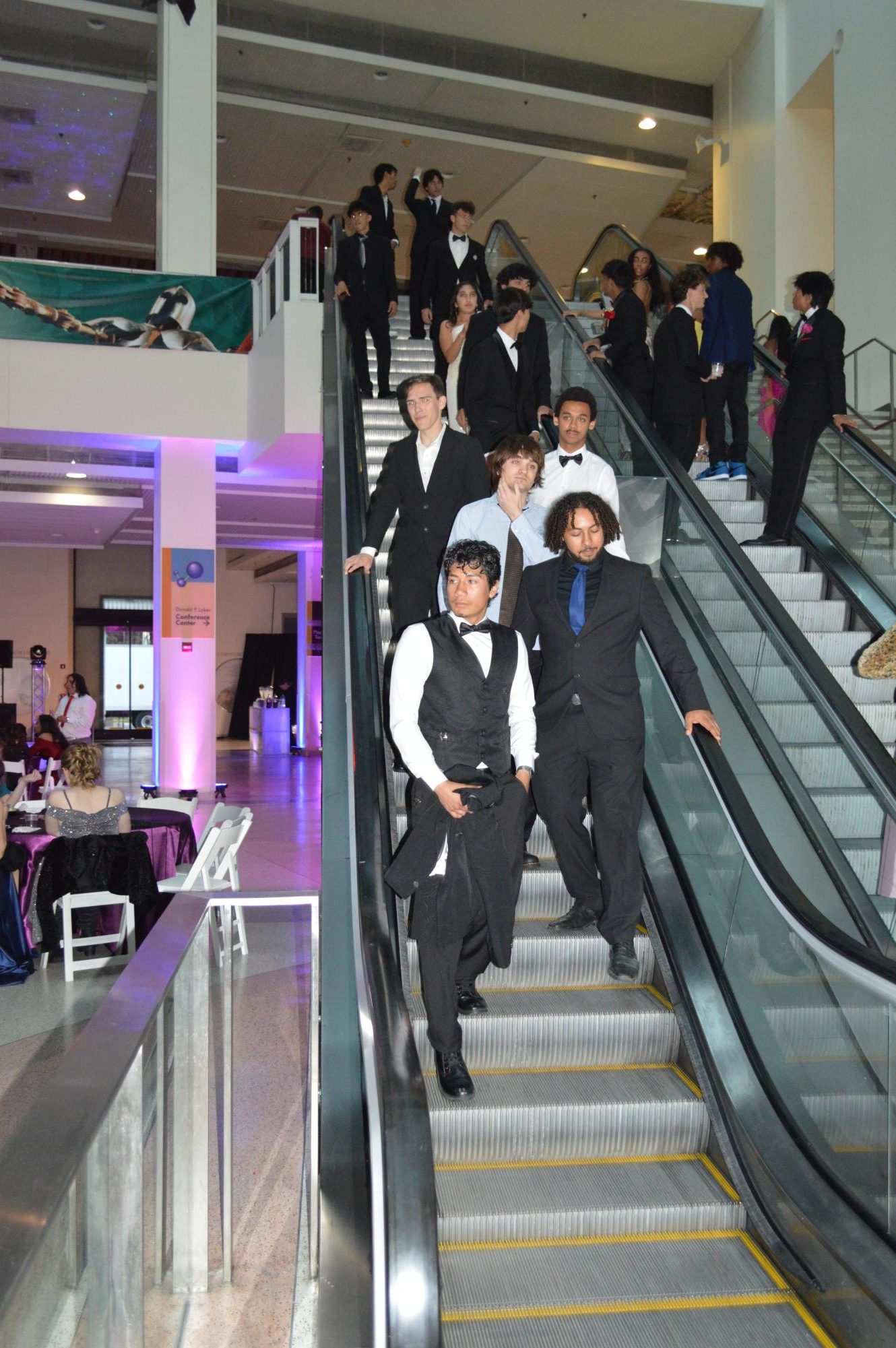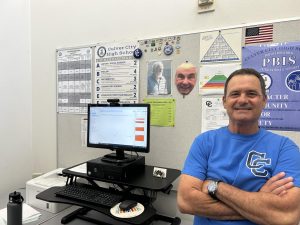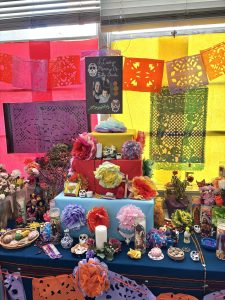Behind the Scenes of Spring Musical “Les Misérables”
March 2, 2023
‘Is there a world you long to see?’ AVPA Theatre’s spring musical “Les Misérables” is officially lifting its curtains this week, starting tonight, Thursday, March 2nd. The production will run in the Robert Frost Auditorium from March 2nd-5th and 9th-12th, with evening performances on Thursdays, Fridays, and Saturdays at 7 PM and Sunday matinees at 2 PM.
“Les Misérables”, a musical based on Victor Hugo’s famous novel, is one of the most well known and longest running musicals of all time. It takes place in France at the beginning of the nineteenth century, during a period of social, political and economic unrest, and covers a wide variety of “intense” themes, according to director Lee Hanson.
“They are capital punishment, having absolutely no grounds for forgiveness, corrupt political and judicial systems and the intense span and divide between classes – between why certain classes are just not seen or cared about, their struggles are not seen, particularly their women and people of color,” she said. “Also in terms of revolution and rising up against authority, I think that’s a difficult and challenging theme to see particularly in this country at this moment, but one that we have both in North America and around the world. [It’s] been a challenge for some people to be in a position thinking about war, what you would be willing to give your life for, what cause matters to you that you’re willing to die for it.”
The show follows the story of Jean Valjean (played by Timothy Francuz), a peasant who was imprisoned in jail after stealing a loaf of bread for his sister’s starving child and is released after nineteen years. After he breaks his parole in an attempt to become a better person, police inspector Javert (played by Ryan Vermette) follows Valjean, determined to bring justice. Javert pursues Valjean for years, culminating during the Paris Rebellion of 1832, an era during which student idealists attempted to overthrow the French government.
“This is and has always been absolutely one of my favorite musicals for many reasons,” said Ms. Hanson, speaking about why she decided to select this show. “It has some of the best music in musical theatre, like there is not a single bad song in this musical and it’s filled with so many. And also the message of this musical is scary in […] how relevant it has always been and continues to be even today. I also knew that this was going to be a challenge and I felt that I had the actors currently who would rise to that challenge.”
As the entire show is composed of songs and there are very few speaking lines, the pit musicians, all members of the AVPA Music department, play for the entirety of the show without a break. Junior Benji Corburn called this experience a “big endurance builder”.
Corburn said he usually is involved with theater productions as an actor or doing sound behind the scenes, but this is his first time playing in the pit. “It’s definitely different because onstage you’re being seen by everyone, and in the pit you’re just behind the scenes, not known very much. It’s a really fun experience. It’s a lot of hours, not as much as [actors], but it’s really good.”
Junior cast member Cosette Okker says her favorite part is being able to work with the pit musicians. “Doing [the show] with the pit is really fun, just because during our breaks, we get to talk to different people,” she explained. “It’s not really cliquey in that sense, like it’s not the pit and then the actors. We mesh together.”
As this is such a large-scale production, there are challenges on the technical and performance sides to stick with the historical period this story takes place in. For instance, junior Hayden Herbst, who plays the role of Marius from March 9th-12th, grew out his hair in order to follow the trends of the 1800’s. During this time, French males would typically grow out their hair and curl it.
“We [had to sign] a contract that [said] we will not alter our appearances in any ways [prior to the shows], which include growing out our hair if it’s required, because if you dye or cut your hair in a period piece like this, sometimes it will look too modern for the show,” explained Herbst.
Herbst, who plays one of the love interests, also said that he participated in ‘love workshops’, in which actors learned how to look like they were in love. “A lot of it was just remembering that at this time, in this era, even just like touching one another on the shoulder or on the hand was a really big thing, so you have to remember to react to that appropriately,” he said.
Similarly, sticking to fashion trends of the 1800’s has been an important component for this production. Junior Alaina Haylock, the head of the costumes crew, said a big challenge has been finding costumes that fit in the time period.
“We do have a fairly sizable collection of costumes […] but none of them are right for this time period,” Haylock explained. “Karen Broderick, the [technical theater] teacher, brought in a book that basically shows examples of fashion from each decade – I think it’s mostly in Europe – over like a thousand years or so.”
Using this book and outside research, the crew was able to use these reference points as guidance when it came to designing the costumes. The costumes crew began working three times a week between two to three hours in January, when rehearsals first began, and their hours began rising to four to five hours a week with meetings five days a week as the show dates became closer.
Actors also spent long hours rehearsing the show, first working nine hours a week over a span of three days. This soon increased to twelve, fifteen, twenty, and approximately forty hours per week. This has been a challenge to many actors, who have had to work through time management.
“There’s the aspect that we’re doing what we love and putting so much time and effort into it. I love theater so much, so I enjoy doing it,” said junior Kaneen Moodie. “Then there’s the other aspect that [the show] is very time consuming and it takes up a lot of your time, so you have to be really dedicated and committed to it.”
One thing actors did to prepare for the long duration of the musical (as its runtime is over two hours) was to condition. Choreographer and AVPA Dance Director Carol Zee gave actors a physical workout they could do in order to build their stamina.
Actors have also felt pressure to live up to the fame of the production. Senior Melia Handley, who plays Fantine from March 9th-12th, said it has been challenging to “find ways to make a character [her] own”.
“I think it’s good to see how other people play it to get into the mindset of it more, but also [Fantine’s] story is so tragic, so you have to do a deep dive into what that would really have been like,” said Handley. “[It’s] not anything we would have experienced normally.”
Her character, a struggling single mother who gives up her daughter in order to make ends meet, is arguably one of the most famous characters in “Les Misérables”, as is a solo she sings titled “I Dreamed A Dream”.
“Sometimes I’m nervous […] if I can tackle the song because her number is so big and well known, but I think that as long as you prepare for it personally and feel confident in the choices you’re making, it’ll turn out okay,” said Handley. She said she has been practicing vibrato, a musical technique of pulsating change in pitch, in preparation for the shows.
The role of Fantine, along with other principal roles, were double cast, with one actor playing the role from March 2nd-5th and the other from March 9th-12th. Moodie, who plays the scheming Madame Thenardier, said she has enjoyed having a counterpart in this production.
“I feel like most people would think this is about to be a competition, like ‘I have to be better than you’, but … it’s not like that,” she said. She also said that her counterpart, freshman Annie Francuz, has become “like my little sister”.
“It’s also so interesting because we’re completely different, like even in the way that we act. We play the same role but it comes out so different and I love both of our versions.”
Okker, who plays a role that is not double casted, said she has also really enjoyed watching the different versions of each character. “It’s really interesting to watch the different ways that the characters are interpreted and the different ways that each person brings one character to life,” she said. “It’s really interesting just to watch the process of them bringing their own individual personality to each character.”
Moodie also spoke about how the cast has come together over the past few months, since rehearsals began in early January. “Overall, seeing how the show comes together and with the people you love and care about, I mean you spend months with these people, so you kind of grow to be like a little family.”
Handley said she has also found immense support amongst the cast. “The cast is supportive, and you can tell everyone is committed, so that makes it really easy to be excited about going to rehearsal and working with everyone.”
Herbst said one of his favorites is during a song called “ABC Cafe/Red and Black”, when the student revolutionaries sing about their excitement to fight against the government.
“It’s such a fun song,” he said. “Most of my friends in the cast also play students, so it’s all of my friends at the same time and we’re all belting out together. I even get to wave a giant flag around.”
Ms. Hanson said she particularly enjoys the contrast between all of the songs of the show. “There are these moments where an actor is onstage and singing about their own viewpoint – for example, ‘I Dreamed A Dream’, a beautiful moment that we have with one actor on stage getting a moment to talk to the audience directly – and in contrast, I love when we have every single ensemble member on stage – like the end of the play ends on a really high together note.”
Moments like these are “emotional” for Handley, as this is her last production in high school before she and the other seniors graduate. “It’s not in the sense that I’m like always really stressed about it, it’s more that like when we do songs that are really moving, I imagine at the last show it’s going to be so powerful and I’m going to be singing this with the cast, and it’s going to be a big moment.”
And of course, ‘at the end of the day’ it comes down to the overall message of “Les Misérables”, which has remained as one of the most influential musicals.
“Theatre can do many things for us, and I love that it can make us laugh and entertain us, but I also really appreciate that theatre can make us feel something, even if that feeling is discomfort, sadness or anger,” said Ms. Hanson. “I hope [the audience will] receive that, and also see that life is literally miserable and there is a tremendous amount of suffering. For me, the core message is about when we have a sense of togetherness we can overcome these things, and the minute we are divided is when we lose our power.”
Tickets for “Les Misérables” will be sold at the door and online, on the AVPA website, where you can also find the cast list. You won’t have to wait any longer – “there is a life about to start when tomorrow comes!”
